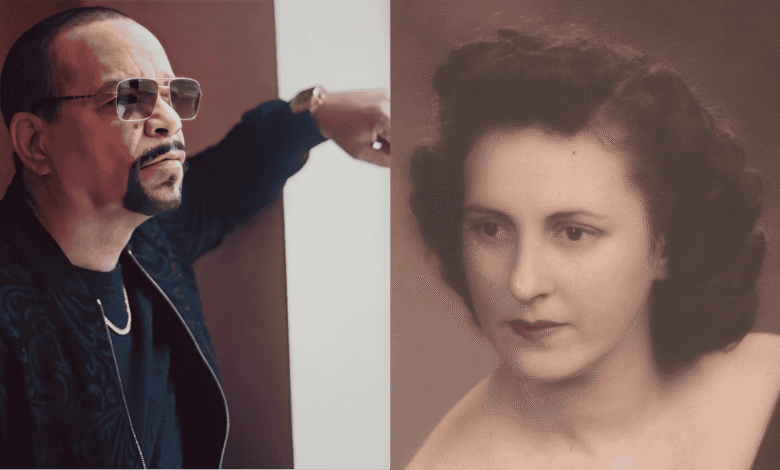In a world often captivated by the spotlight, there are figures like Alice Marrow whose contributions go unnoticed by the public eye but leave a deep and lasting impact. Whether you’re a student of history, a fan of literature, or simply someone who enjoys stories of underappreciated heroes, the story of Alice Marrow offers inspiration, depth, and an insight into a remarkable life.
While not a household name, Alice Marrow’s legacy echoes in various fields—from the arts to humanitarian work. Her name may not be trending, but her influence is steadily gaining recognition among scholars, creatives, and advocates around the globe.
In this article, we dive deep into who Alice Marrow was, what she accomplished, and why her name deserves to be known.
Humble Beginnings and Early Passion
Alice Marrow was born in a modest town where resources were limited, but dreams were endless. From a young age, Alice displayed a deep curiosity about the world around her. Her interests were wide-ranging: literature, music, nature, and community welfare. Unlike many of her peers, she had an instinctive desire to understand systems and challenge norms—not for rebellion, but for improvement.
Raised by parents who valued education and service, Alice spent much of her early years reading voraciously and helping at local charity events. These small but formative experiences shaped her into a person who saw opportunity in adversity and beauty in broken systems.
Academic and Professional Breakthroughs
By the time she reached university, Alice Marrow had already developed a reputation for being intellectually sharp and emotionally intelligent. She pursued a degree in Sociology, combining her love for human behavior with her desire to create change. But what truly set her apart was her ability to connect theoretical knowledge with real-world application.
After graduation, she joined several non-profits, working in inner-city programs focused on education reform and youth rehabilitation. Her knack for innovative policy thinking and community engagement made her a favorite among both her peers and the communities she served.
She later co-founded a grassroots organization that worked with marginalized groups, providing access to mental health care and legal resources. While many leaders chased fame, Alice stayed true to her core—working quietly and tirelessly in the background, enabling others to rise.
Alice Marrow and Her Impact on the Arts
A Forgotten Muse and Creative Collaborator
Though best known for her activism, Alice Marrow was also deeply involved in the creative arts. She collaborated with several well-known artists, writers, and filmmakers during the late 20th century. In fact, some believe that she served as the inspiration for a number of characters in modern literature and indie films.
Unlike other muses who merely existed as symbols, Alice contributed intellectually and emotionally to the creative process. She would help structure narratives, add psychological depth to characters, and often infused real-life experiences into fictional worlds. Her name may not appear in the credits, but her fingerprints are on countless works of art that have moved audiences to tears and laughter.
It’s said that her ability to “see people as they are and as they could be” made her an irreplaceable figure in the creative circle she inhabited. While she never published a book of her own, her journals and correspondences—recently uncovered—reveal a rich inner world and sharp analytical mind.
Challenges and Setbacks
No life story is complete without its share of struggles, and Alice Marrow faced hers with characteristic grace and grit. From institutional sexism in professional spaces to the emotional toll of working with trauma-affected populations, Alice bore more than her fair share of burdens.
She suffered a severe health setback in her early forties that forced her to take a hiatus from active fieldwork. Instead of fading away, she used the time to mentor young leaders, host workshops, and write essays on systemic reform—many of which are now archived in university libraries and quoted in academic papers.
Despite these hurdles, Alice never viewed herself as a victim. She saw every challenge as an invitation to adapt and grow. Her resilience became one of her defining traits and a source of inspiration for everyone around her.
The Quiet Power of Alice Marrow’s Leadership
Why Her Name Still Matters
In leadership studies, a growing body of research focuses on “servant leadership”—a model where the leader exists to serve others rather than dominate. Alice Marrow embodied this ideal long before it became popular in textbooks and seminars. She empowered, she nurtured, and she led by example rather than command.
Colleagues recall her uncanny ability to walk into a room, listen more than she spoke, and leave behind solutions no one had considered. Her legacy is a reminder that true leadership isn’t about titles or social media followings—it’s about lasting influence and quiet empowerment.
Many programs she helped design are still active today, run by younger professionals who consider Alice their mentor and guiding star.
Alice Marrow in the Digital Age
A Rediscovered Legacy
In recent years, the internet has played a surprising role in reigniting interest in Alice Marrow. Young activists, historians, and content creators have started highlighting forgotten heroes, and Alice’s story is among the most compelling.
Social media posts sharing excerpts from her personal letters have gone viral. A few short documentaries and podcasts have also surfaced, exploring different aspects of her work and personality. There’s even a growing campaign to include her biography in high school and university curricula as an example of community-driven change.
Her teachings about empathy, systemic thinking, and the power of grassroots action are more relevant than ever in today’s fragmented world.
Why Alice Marrow Resonates Today
In an era defined by noise, speed, and spectacle, the life of Alice Marrow is a grounding force. She reminds us that lasting change is often quiet, true genius is humble, and genuine impact doesn’t need applause. Her values—empathy, service, courage, and collaboration—are exactly what modern society needs as we tackle issues like climate change, inequality, and mental health.
Moreover, her interdisciplinary approach—spanning social work, creative arts, education, and policy—proves that silos rarely produce innovation. Alice Marrow stands as a model of integrated thinking and whole-hearted living.
In the Words of Those Who Knew Her
“Alice didn’t want recognition; she wanted results. And that’s exactly what she gave us. Her life was her message.”
— Dr. Elena Morales, Social Psychologist
“Without Alice, our project would’ve never taken off. She had a way of simplifying complexity and making everyone feel seen.”
— Michael Reeves, Co-Founder of UrbanSeed Initiative
“She was the invisible thread holding everything together.”
— Anonymous Community Member
Conclusion:
As we conclude this exploration of Alice Marrow’s life, one thing is clear: her story isn’t over. It lives on in the programs she created, the people she mentored, the art she influenced, and the spirit she embodied.
Whether you’re an aspiring changemaker, a creative soul, or someone searching for purpose, the life of Alice Marrow holds a mirror to the best parts of our humanity. In a world obsessed with visibility, she chose impact. In a culture that values noise, she practiced depth.
May we all take a page from Alice Marrow’s book—not to chase legacy, but to live meaningfully, love bravely, and lead quietly.
FAQs
Q1: Was Alice Marrow a real person or a symbolic figure?
Alice Marrow was indeed a real person, though much of her work remained undocumented or attributed to larger collectives. She’s now gaining recognition for her individual contributions.
Q2: What fields did Alice Marrow contribute to?
She was active in social work, education reform, creative arts collaboration, and grassroots activism.
Q3: Are there any books or documentaries about her?
Yes, a few independent documentaries and podcast episodes have been created recently. Some of her unpublished writings are being archived and studied by universities.
Q4: What makes Alice Marrow’s story relevant today?
Her holistic and empathetic approach to leadership, creativity, and reform resonates strongly in today’s divided and fast-paced world.
Q5: How can I learn more or support her legacy?
Following academic and community-led initiatives that highlight her life is a great start. You can also support causes she championed—like mental health access and inclusive education.



